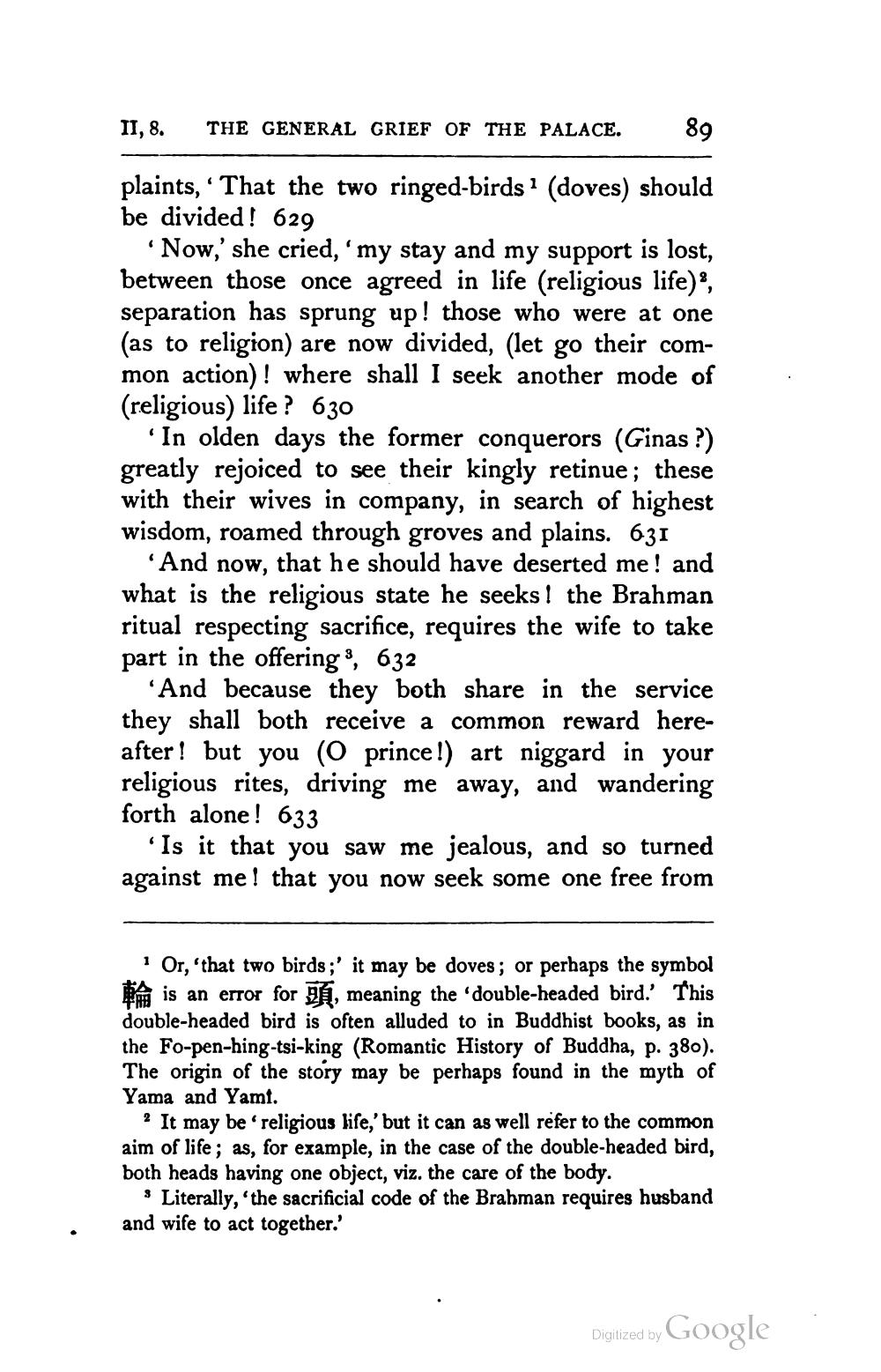________________
II, 8.
THE GENERAL GRIEF OF THE PALACE.
89
plaints, ‘That the two ringed-birds ? (doves) should be divided! 629
'Now,' she cried,'my stay and my support is lost, between those once agreed in life (religious life), separation has sprung up! those who were at one (as to religion) are now divided, (let go their common action)! where shall I seek another mode of (religious) life ? 630
'In olden days the former conquerors (Ginas ?) greatly rejoiced to see their kingly retinue; these with their wives in company, in search of highest wisdom, roamed through groves and plains. 631
‘And now, that he should have deserted me! and what is the religious state he seeks! the Brahman ritual respecting sacrifice, requires the wife to take part in the offering 3, 632
"And because they both share in the service they shall both receive a common reward hereafter! but you (O prince!) art niggard in your religious rites, driving me away, and wandering forth alone! 633
'Is it that you saw me jealous, and so turned against me! that you now seek some one free from
Or, that two birds ;' it may be doves; or perhaps the symbol MA is an error for 9, meaning the double-headed bird.' This double-headed bird is often alluded to in Buddhist books, as in the Fo-pen-hing-tsi-king (Romantic History of Buddha, p. 380). The origin of the story may be perhaps found in the myth of Yama and Yamt.
? It may be religious life,' but it can as well refer to the common aim of life; as, for example, in the case of the double-headed bird, both heads having one object, viz. the care of the body.
Literally, 'the sacrificial code of the Brahman requires husband and wife to act together.'
Digitized by Google




